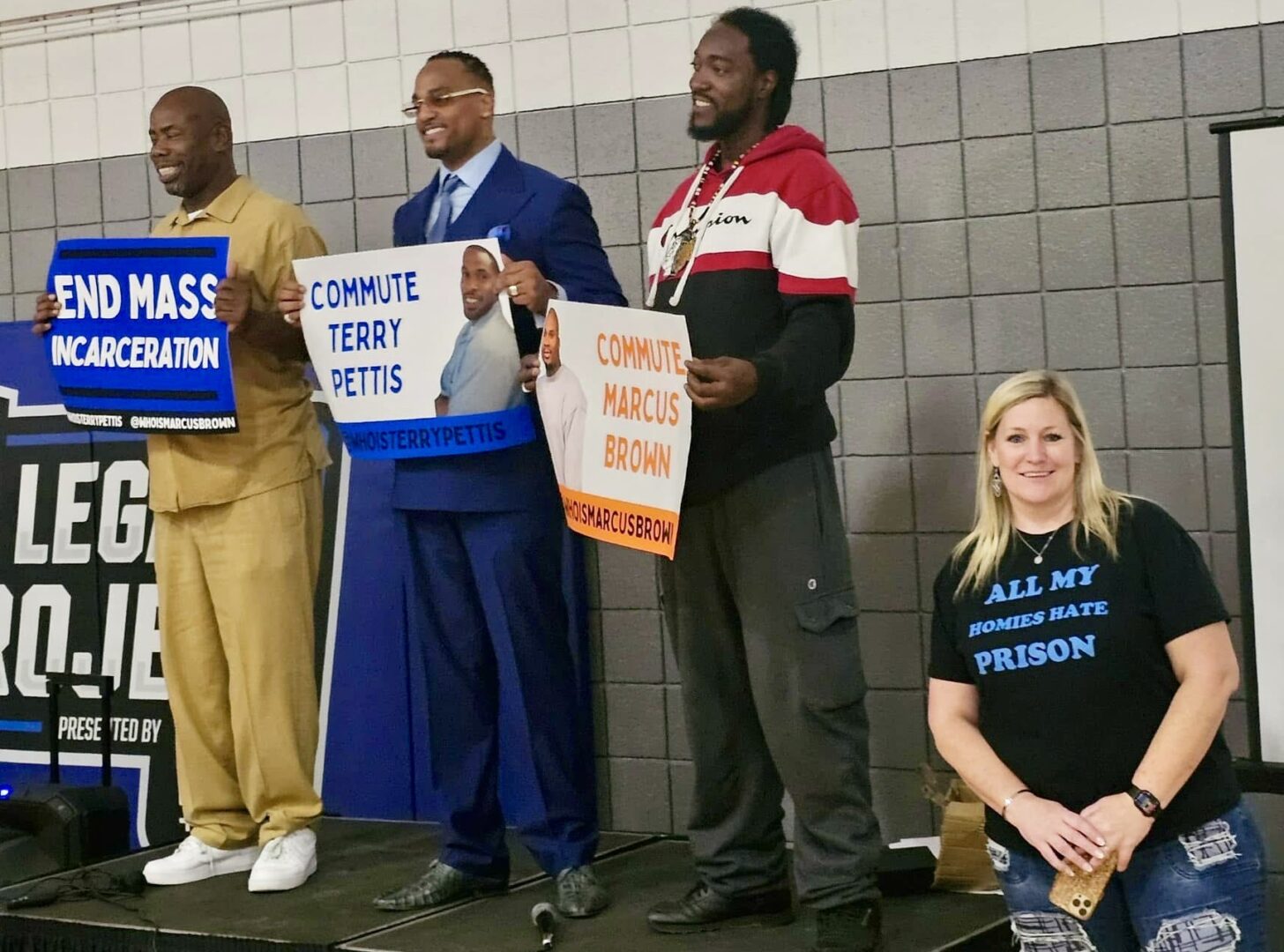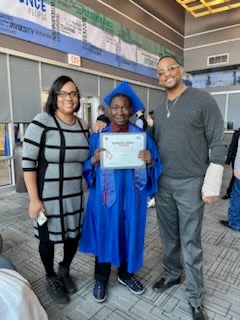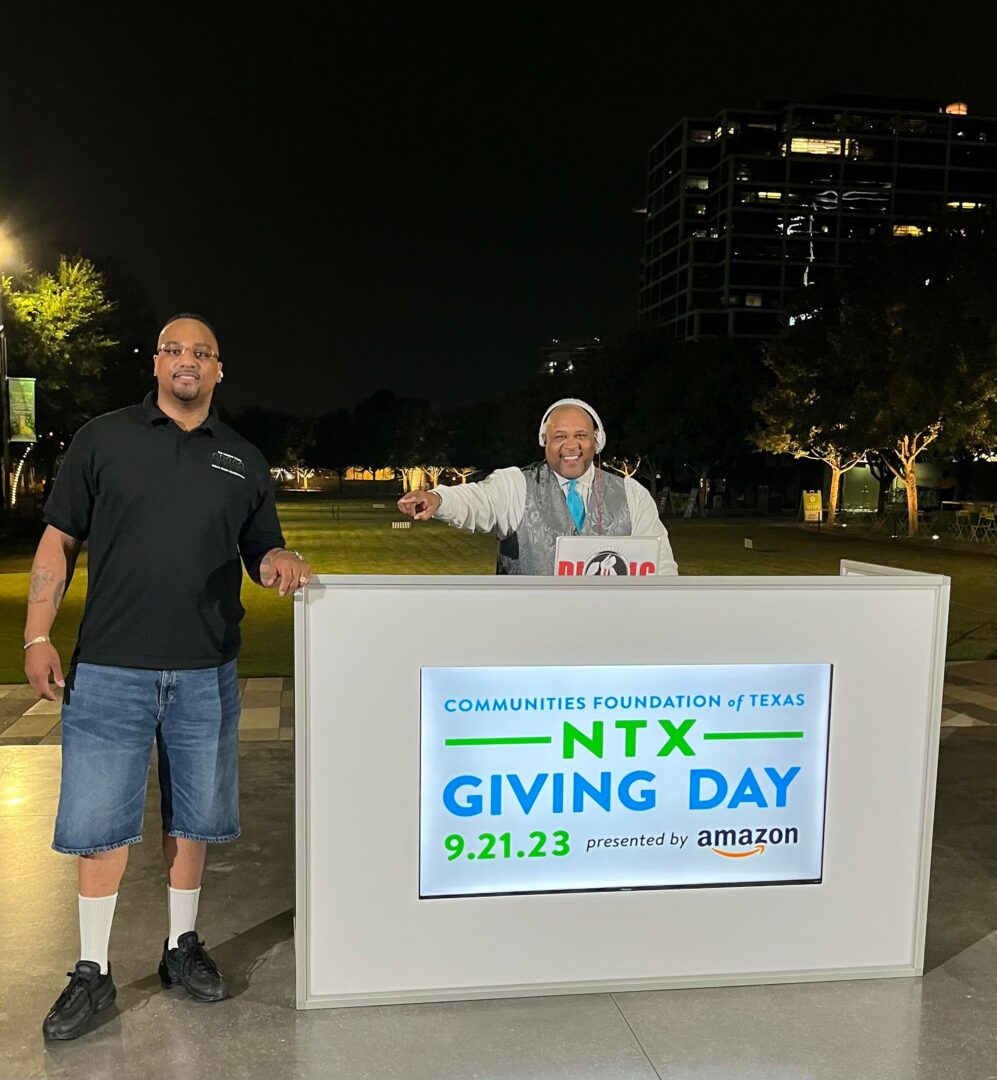We were lucky to catch up with Shawn Wright recently and have shared our conversation below.
Shawn, we’re thrilled to have you on our platform and we think there is so much folks can learn from you and your story. Something that matters deeply to us is living a life and leading a career filled with purpose and so let’s start by chatting about how you found your purpose.
I found my purpose through the trials and challenges I’ve faced. Growing up in a marginalized community, I experienced poverty, limited opportunities, and the harsh realities of systemic inequities. Like many young people in similar circumstances, I joined a gang at an early age, seeking belonging and survival in an environment that offered little hope. That path ultimately led to my incarceration, where I was sentenced to more than 27 years in prison.
Going to prison was a turning point for me. While there, I began mentoring youth and adults, helping them navigate their struggles and find ways to rise above their circumstances. I educated myself, becoming a certified paralegal, and used that knowledge to advocate for others who felt voiceless.
When I returned to society, I faced new obstacles—poorly trained halfway house staff, indifferent parole officers, and the crushing weight of post-conviction poverty. These barriers were designed to hold me back but only strengthened my resolve to help others overcome them.
That’s why I co-founded TWCUYC and became certified in peer support. My purpose is to help people find hope, navigate challenges, and build better futures. Every step I take is rooted in ensuring that no one has to face the journey alone.


Appreciate the insights and wisdom. Before we dig deeper and ask you about the skills that matter and more, maybe you can tell our readers about yourself?
I’ve always been driven by my own experiences growing up in a marginalized community, joining a gang at a young age, and ultimately being sentenced to over 27 years in prison. After spending years incarcerated, I found my purpose in helping others facing similar struggles. My time in prison opened my eyes to the systemic issues that trap people in cycles of poverty and limited opportunity, and I’ve dedicated my life to breaking those cycles.
At The Wright Cause Urban Youth Conservation (TWCUYC), our mission is to uplift marginalized communities through support services like Resilience Rising, our transitional housing program for individuals impacted by HIV. This program provides a safe place to live, life skills, financial literacy, and peer support to help individuals rebuild their lives and achieve long-term stability. We focus on empowering those impacted by HIV—whether directly or indirectly—and helping them overcome the barriers to healthy, fulfilling lives.
What excites me most about our work is the real, lasting impact we have on individuals. Watching people take control of their future and build a better life for themselves and their families is gratifying. Through our programs, we provide housing and the tools to thrive—skills that make a real difference in their day-to-day lives.
Advocacy is also a key part of our work. We offer Advocacy Day, an event where we teach communities to advocate for themselves, others, and causes using AI. This empowering experience helps participants harness the power of technology to drive social change and address issues affecting their lives and communities.
We’re also gearing up for our 2025 Day of Empathy in Dallas-Fort Worth, which will focus on excessive sentencing and its impact on individuals, families, and communities—particularly those already facing systemic disadvantages. This event will explore how harsh sentences affect health, including the spread of HIV, and how we can work toward justice reform.
At all of our events, we make it a priority to discuss HIV prevention, testing, and treatment. These conversations are vital as we continue to educate and raise awareness about the ongoing HIV epidemic. We are committed to providing access to care and information for those who need it most, with a special focus on the most vulnerable communities, including Black women, LGBTQIA individuals, and those affected by the justice system.
Ultimately, our goal is to help individuals and communities overcome the challenges they face—whether it’s navigating post-incarceration life, living with or impacted by HIV, or dealing with housing instability. We do this by offering immediate resources and advocating for systemic changes that can create healthier, more resilient communities for everyone.


There is so much advice out there about all the different skills and qualities folks need to develop in order to succeed in today’s highly competitive environment and often it can feel overwhelming. So, if we had to break it down to just the three that matter most, which three skills or qualities would you focus on?
Looking back on my journey, I’d say the three most impactful qualities for me have been humility, resilience, and a commitment to lifelong learning, along with the ability to surround yourself with the right people.
First, humility has been crucial. It’s easy to think you know everything when you’ve been through a lot, especially when you’ve gained knowledge through your own struggles. But one of the biggest lessons I’ve learned is to stay open to advice—even when you think you have it all figured out. Sometimes the best lessons come from the people who have been in the game longer than you or who have had different experiences. Being able to listen and take in those perspectives has been one of the most powerful tools in my growth.
Next, resilience has been key. Life will throw a lot of obstacles at you, and the road is rarely smooth. But what I’ve learned is that resilience isn’t about never falling down; it’s about getting back up every time you do. It’s about finding a way to keep moving forward, even when things seem impossible. For me, resilience has been the foundation of everything—whether in prison, as I fought to better myself, or after I got out, when I had to rebuild my life.
Lifelong learning is something I can’t emphasize enough. You can’t ever stop growing or thinking you know it all. That’s why I became a certified peer specialist—I wanted to keep learning so I could better help others. Whether it’s formal education, like becoming a paralegal in prison, or informal lessons learned from those around you, always be willing to grow. I can’t tell you how many times learning something new has opened doors I didn’t even know existed.
Lastly, surrounding yourself with the right people is something I’ve come to realize is vital. Not everyone in your circle is going to add to your growth, and that’s okay. It’s important to be selective about who you spend time with. You need people who uplift you, challenge you, and support your vision. And sometimes, that means loving people from a distance. You have to protect your energy and focus on your path. It’s hard, but maintaining that boundary helps you stay grounded and sane through the challenges you face.
For anyone starting their journey, my advice is simple: Stay open to new ideas, listen to others—even if it feels like you already know what they’re saying—and never stop learning. Surround yourself with those who lift you up, and don’t be afraid to love others from a distance if that’s what it takes to stay focused. Your journey is just beginning, and every step you take now is part of something bigger than you may realize.


One of our goals is to help like-minded folks with similar goals connect and so before we go we want to ask if you are looking to partner or collab with others – and if so, what would make the ideal collaborator or partner?
I am always looking to collaborate with like-minded individuals and organizations committed to creating meaningful change. At The Wright Cause Urban Youth Conservation (TWCUYC), our mission is to embolden marginalized communities, and partnerships with others who share our values are crucial to achieving that mission.
We’re open to a variety of collaborations, such as:
• Community engagement: Partnering with organizations that can help us amplify our outreach efforts, including HIV awareness, reentry resources, housing stability, and education.
• Mentorship and training: Collaborating with organizations focused on mentorship, life skills training, and peer support, particularly for those impacted by HIV and the justice system.
• Events and Advocacy: Working with advocacy groups or organizations for our Advocacy Day and Day of Empathy events, which aim to raise awareness on critical issues such as HIV prevention, excessive sentencing, and justice reform.
• Funding and resource support: As a nonprofit, we also need financial support to keep our programs running, so funding or resource-sharing partnerships are vital to sustaining our impact. Donations, grants, or sponsorships are always appreciated and help us continue to provide housing and educational opportunities for those in need.
If you’re interested in collaborating through a partnership, donation, or any other form of support, please feel free to contact us. You can contact us at:
Email: [email protected]
Website: www.twcuyc.org
Phone: (972) 559-9201
Social Media: @twcuyc
We look forward to connecting with individuals and organizations ready to join us in making a real difference.
Contact Info:
- Website: https://twcuyc.org
- Instagram: https://instagram.com/twcuyc
- Facebook: https://Facebook.com/twcuyc.org
- Linkedin: https://www.linkedin.com/company/twcuyc
- Twitter: https://x.com/twcuyc
- Youtube: @twcuyc


so if you or someone you know deserves recognition please let us know here.




